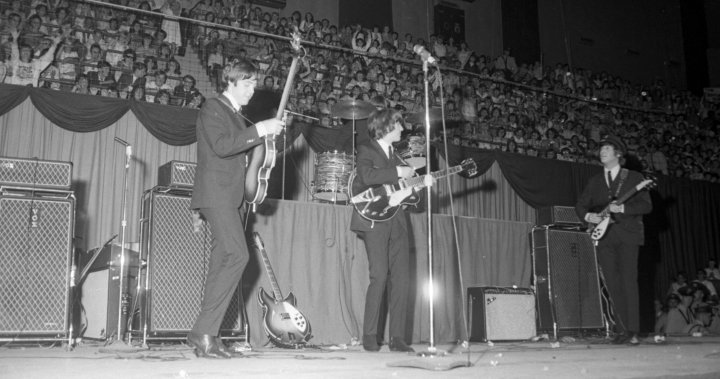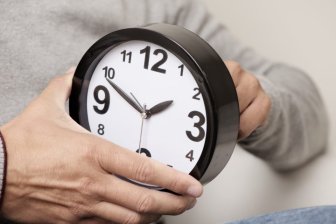The Beatles played Toronto three times (1964, 1965, and 1966), all at Maple Leaf Gardens. Demand for tickets was huge and the band was on a tight touring schedule. They needed to get in and get out while performing for as many people as possible. Adding a second night wasn’t in the cards so the only thing they could do is play two shows on the same day: the usual evening gig preceded by a matinee performance. In between, they grabbed a bite to eat and held a press conference.
Matinees (usually as part of a doubleheader) were common back then. All the early rock pioneers — Elvis, Chuck Berry, Little Richard, The Rolling Stones, The Who et al — did them. It was exhausting for the act but the effort made good business sense. Not only did the scheduling of a matinee double a fan’s chances of being able to see a show, but if you were too young to go out at night, there was a chance your parents would let you attend an afternoon show.
Matinee concerts continued for years. I recall in the 1990s when some bands insisted on playing an early all-ages show followed by a licensed event in the evening. Punk bands were especially good at serving their younger demo with early sets. It was a great way to satisfy both the adults (who could avail themselves of the bar) and the kids (and the venue didn’t have to worry about underage drinking because the bar was closed to alcohol sales).
But as the rock business matured, afternoon performances slowly disappeared. Today, they’re all but gone. Unless you’re at a festival, it’s extremely rare to find an artist who’s willing to play an afternoon slot.
This is unfortunate because these days, it’s not just underage kids who want shows at that time of the day but also a growing number of adults.
Look, just because you’re on the lee side of 30 doesn’t mean you’ve given up on the live music experience. You’d love to see more shows but life always seems to get in the way. There are the kids, getting up for work the next morning, and the enormous scheduling conflicts.
And let’s be honest: After a certain age, you’re kinda tired of waiting until 10:30 pm on a Tuesday night for a band to hit the stage. Heck, I’m in bed most nights long before that.
More on Entertainment
By not catering to the demo that doesn’t want/can’t afford to be out late, artists and promoters are leaving a lot of money on the table. And let’s not forget that the older demos are the ones with more money to spend at shows.
There are two solutions. First, gigs could start earlier. Rather than heading home or killing time before a show, people could go straight from work. If the lights were to go down at, say, 7 pm, everything could be done by 9:30. Everyone who has to get up in the morning can get to bed at a reasonable hour while those who want to continue the night still have hours before them. I know I’d see a lot more club shows if they started and finished earlier.
The second solution is to re-introduce matinees. Obviously, this isn’t practical on weekdays, but what about weekends? Hey, theatre productions have offered matinee performances for decades. A big, big chunk of professional sports are held in the afternoon. Casinos offer matinee performances. So why not big-name concerts? I’d be more inclined to see acts like Bruce Springsteen. Does the Boss want to play a five-hour show? Fantastic! Just start at 3 p.m. so I can be home to wind down before bed.
Jamie Lee Curtis recently ranted about the lack of matinees. Appearing on NBC’s Today show recently, she vented “Why are there no matinees? For instance, I love Coldplay. I would love to go see Coldplay. The problem is, I’m not going to go see Coldplay if they start their show at nine o’clock and there’s an opening act. I want to hear Coldplay at 1 p.m. I think if we filled a stadium with people who want to see a matinee of Coldplay, I think we would start a trend.”
Love it. Instead of dinner and a show, it’s a show and dinner. Then it’s back home to dismiss the babysitter, play with the kids, deal with the dog, and get to bed at a reasonable hour. Not very rock’n’roll in a traditional sense, but I’m OK with that.
Sure, load-in/load-out procedures and touring schedules would have to be adjusted, but that’s not an insurmountable barrier. Where there’s money, there’s a way. And I’m sure many heritage acts — and there’s a growing number of them — would like to wrap up their day earlier, too.
I repeat: This has nothing to do with being old, infirm, crotchety, and not loving live music. It has everything to do with being practical and inclusive. The population is aging and society needs to adjust.
Who’s with me?
UPDATE: Oh. So that’s why we can’t have afternoon concerts. I knew there had to be a reason.
—
Alan Cross is a broadcaster with Q107 and 102.1 the Edge and a commentator for Global News.
Subscribe to Alan’s Ongoing History of New Music Podcast now on Apple Podcast or Google Play
© 2023 Global News, a division of Corus Entertainment Inc.



